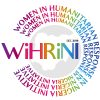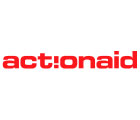WiHRiNI’s vision is a Nigeria with strong women-led non-governmental organizations which work across the triple nexus of humanitarian, development and peace work and catalyze a new era for women empowerment and engagement nationally and internationally.
Our mission is to ensure each of our members have the support network they need to fully implement their mission and grow as strong vibrant organizations.
Our objectives include:
- To serve as a platform for women led/headed CSOs providing humanitarian interventions
- To provide effective humanitarian response coordination and promote collaboration with relevant stakeholders
- To build and enhance capacity of women led/headed Civil Society Organisations for effective and efficient response to humanitarian interventions
- To engage in research findings for informed data provision for productive advocacy and programming.
WiHRiNI is a steering committee member of the Feminist Humanitarian Network; a member-based network of grassroots and national Women’s Rights Organisations (WROs) working in the Global South, regional networks, international NGOs, and individuals working to strengthen the agency and amplify the voices of women in emergencies, and to transform the humanitarian system into one that is guided by feminist principles.





